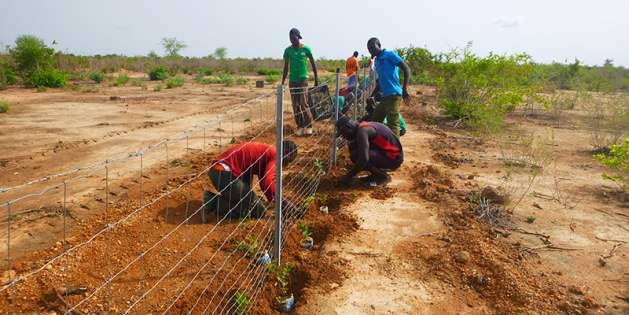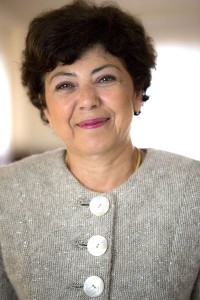Our Land. Our Home. Our Future

BONN, Germany, Jun 14 (IPS) - We all have dreams. For most of us, those dreams are often quite simple. They are common to individuals and communities all around the world. People just want a place to settle down and to plan for a future where their families don't just survive but thrive. For far too many people in far too many places, such simple dreams are disappearing into thin air.
This is particularly the case in rural areas where populations are suffering from the effects of land degradation. Population growth means demand for food and for water is set to double by 2050 but crop yields are projected to fall precipitously on drought affected, degraded land.
More than 1.3 billion people, mostly in the rural areas of developing countries, are in this situation. No matter how hard they work, their land no longer provides them either sustenance or economic opportunity. They are missing out on the opportunity to benefit from increasing global demand and wider sustained economic growth. In fact, the economic losses they suffer and growing inequalities they perceive means many people feel they are being left behind.
They look for a route out. Migration is well trodden path. People have always migrated, on a temporary basis, to survive when times are tough. The ambitious often chose to move for a better job and a brighter future.
One in every five youth, aged 15-24 years, for example is willing to migrate to another country. Youth in poorer countries are even more willing to migrate for a chance to lift themselves out of poverty. It is becoming clear though that the element of hope and choice in migration is increasingly missing. Once, migration was temporary or ambitious. Now, it is often permanent and distressed.
Over the next few decades, worldwide, close to 135 million people are at risk of being permanently displaced by desertification and land degradation. If they don't migrate, the young and unemployed are also at more risk of falling victim to extremist groups that exploit and recruit the disillusioned and vulnerable.

So this year, the Convention is calling for a focus on making the land and life in rural communities viable for young people. As the global population edges towards at least 9 billion, in Africa alone 200 million of the 300 million young people entering the job market over the next 15 years will be living in rural areas.
Let's give young, rural populations better choices and options. We need policies that enable young people to own and rehabilitate degraded land. There are nearly 500 million hectares of once fertile agricultural land that have been abandoned. Let us give young people the chance to bring that natural capital back to life and into production.
If we secure access to new technologies and to the knowledge they need, they can build resilience to extreme weather-elements like drought. With the right means at their disposal, they can feed a hungry planet and develop new green sectors of the economy. They can develop markets for rural products and revitalize communities.
With the right type of investments in land, rural infrastructure and skills development, the future can be bright. We have to send a clear message that if it is well managed, the land can provide not just enough to get by but a place where individuals and communities can build a future.
© Inter Press Service (2017) — All Rights ReservedOriginal source: Inter Press Service
 Global Issues
Global Issues